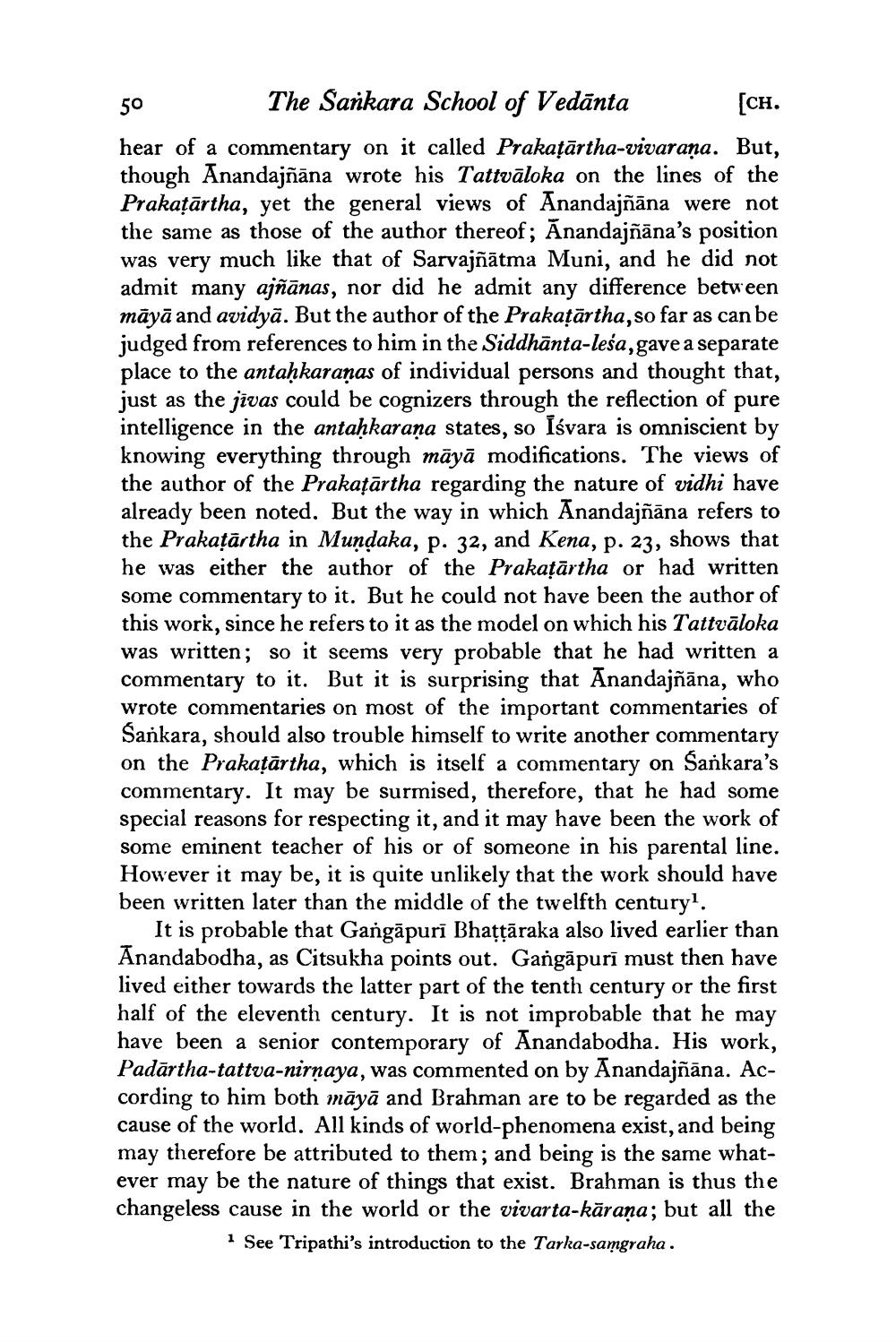________________
50
[CH.
The Sankara School of Vedānta hear of a commentary on it called Prakațārtha-vivarana. But, though Anandajñāna wrote his Tattvāloka on the lines of the Prakațārtha, yet the general views of Anandajñāna were not the same as those of the author thereof; Anandajñāna's position was very much like that of Sarvajñātma Muni, and he did not admit many ajñānas, nor did he admit any difference between māyā and avidyā. But the author of the Prakațārtha, so far as can be judged from references to him in the Siddhānta-leśa, gave a separate place to the antaḥkaranas of individual persons and thought that, just as the jīvas could be cognizers through the reflection of pure intelligence in the antaḥkaraña states, so Iśvara is omniscient by knowing everything through māyā modifications. The views of the author of the Prakațārtha regarding the nature of vidhi have already been noted. But the way in which Anandajñāna refers to the Prakațārtha in Mundaka, p. 32, and Kena, p. 23, shows that he was either the author of the Prakațārtha or had written some commentary to it. But he could not have been the author of this work, since he refers to it as the model on which his Tattvāloka was written; so it seems very probable that he had written a commentary to it. But it is surprising that Anandajñāna, who wrote commentaries on most of the important commentaries of Sankara, should also trouble himself to write another commentary on the Prakațārtha, which is itself a commentary on Sankara's commentary. It may be surmised, therefore, that he had some special reasons for respecting it, and it may have been the work of some eminent teacher of his or of someone in his parental line. However it may be, it is quite unlikely that the work should have been written later than the middle of the twelfth century.
It is probable that Gangāpuri Bhațțāraka also lived earlier than Anandabodha, as Citsukha points out. Gangāpuri must then have lived either towards the latter part of the tenth century or the first half of the eleventh century. It is not improbable that he may have been a senior contemporary of Anandabodha. His work, Padārtha-tattva-nirnaya, was commented on by Anandajñāna. According to him both māyā and Brahman are to be regarded as the cause of the world. All kinds of world-phenomena exist, and being may therefore be attributed to them; and being is the same whatever may be the nature of things that exist. Brahman is thus the changeless cause in the world or the vivarta-kārana; but all the
1 See Tripathi's introduction to the Tarka-samgraha.




